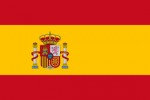The Birth of Modern Thought - The Spanish Golden Age - Imprint information
The original and banderole book The Birth of Modern Thought - The Spanish Golden Age (Modern Düşüncenin Doğuşu - İspanyol Altın Çağı) written by Cemal Bali Akal, second page infos:
- Original Name, Modern Düşüncenin Doğuşu - İspanyol Altın Çağı
- ISBN 975-7501-07-7
- Author, Cemal Bâli Akal
- Printing, Extended Third Edition, January 2003, Ankara
- Sizes, 13,5 x 21,0 cm
- Number of pages, 323 pages
- Language, Turkish
- Publisher, Dost Kitabevi
- Condition, 10/10 (new)
Aboud for The Birth of Modern Thought - The Spanish Golden Age
The book The Birth of Modern Thought (Modern düşüncenin doğuşu) consists of three chapters. The title of the first chapter is Thinking International Law. In the chapter, where Vitoria was given a very large place as the creator of this idea, the international legal theories of its followers Soto and Veracruz were included. In fact, when it comes to international law, the first Spanish thinkers that come to mind are Vazquez de Menchaca and Suarez. However, these two thinkers are representatives of a nationalist conception that breaks decisively from Vitoria's universalist line. Therefore, Vazquez de Menchaca and Suarez are included in the third chapter on nation giants, while in the first chapter only their thoughts on indigenous people are mentioned.
The title of the second part is Thinking about Human Rights. In this section, weight is given to Las Casas thought and action. The section, which deals with the pro-indigenous attitudes of thinkers such as Pedro de Cordoba, Toribio de Benavente Motolinia, Jeronimo de Mendieta ... within the framework of a practical human rights struggle rather than being a theoretical one, It also lists efforts to save indigenous culture.
The third chapter is entitled Thinking of the State. In this section, it is explained how, in a process starting from Vives and reaching Suarez, by adding the elements that enable the state to think, they formed the positivist modern state theory. Golden Age thinkers, XVI. In the 20th century, the institution that was designed as an absolutely independent political power at the international level, which realizes noble justice, ensures national unity in language, is the sole determinant of education and health services, makes economic intervention, does not share the power of judgment with anyone, takes its consultancy from its members, it is nothing but the state...
Back cover
Europe discovers the new world in 1492 and tries to change and rethink itself and the rest of the world, while rapidly differentiating it in a modernization-colonization process. Representing the conquerors of all time on the one hand and the pro-freedoms on the other, the "modern man" is born and grows up. The pioneer of this process in practice and theory is Spain. XVI. XVII from the beginning of the century. The Golden Age, dating back to the mid-century, is the period when this country made a magnificent breakthrough in the fields of philosophy, literature, art, religious thought, and also introduced the concepts of modern state, human rights and international law to Western thought. The bold solutions that the thinkers and actions of the Golden Age found to the new problems of the Age are still up to date. It is striking that they determined the basic principles of modernity with a critical mindset and unparalleled mastery. Their struggle for universal values in an adventure of conquest is both tragic and admirable… Equally surprising is the ignoring of this meaningful starting moment and place for our present and our mentality, forgetting Vitoria, Las Casas, Suárez and others. But to ignore all these would be to give up understanding of modern thought and structuring.
| Shipping Cost |
|
No reviews found!
 English
English
 Türkçe
Türkçe German
German French
French Español
Español







No comments found for this product. Be the first to comment!